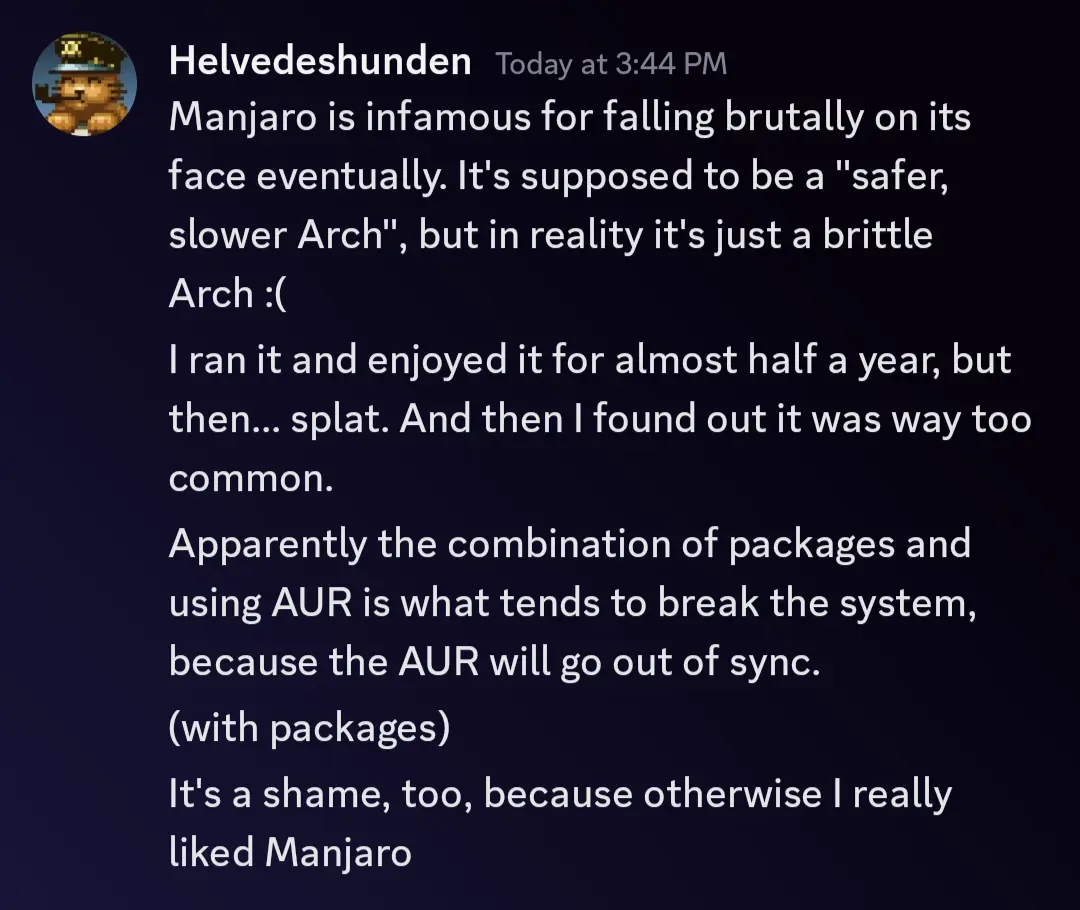this post was submitted on 21 Dec 2023
250 points (94.3% liked)
Linux
54081 readers
511 users here now
From Wikipedia, the free encyclopedia
Linux is a family of open source Unix-like operating systems based on the Linux kernel, an operating system kernel first released on September 17, 1991 by Linus Torvalds. Linux is typically packaged in a Linux distribution (or distro for short).
Distributions include the Linux kernel and supporting system software and libraries, many of which are provided by the GNU Project. Many Linux distributions use the word "Linux" in their name, but the Free Software Foundation uses the name GNU/Linux to emphasize the importance of GNU software, causing some controversy.
Rules
- Posts must be relevant to operating systems running the Linux kernel. GNU/Linux or otherwise.
- No misinformation
- No NSFW content
- No hate speech, bigotry, etc
Related Communities
Community icon by Alpár-Etele Méder, licensed under CC BY 3.0
founded 6 years ago
MODERATORS
you are viewing a single comment's thread
view the rest of the comments
view the rest of the comments

Going to weigh in, manjaro devs are kinda incompetent. They've ddosed the aur twice in the exact same way, showing that they hadn't done anything to solve the inherent issue. Their ssl certs keep expiring, even though auto-renewal takes about ten minutes to set up while telling their users to "change your clocks time" as a patch solution while they fix their certs once (which took hours).
Their head arm developer sent a patch to asahi linux which broke x-org, showing he shipped code without so much as running the thing to test making a change well known and documented to cause this error with zero benefit to the project or his commit. This, after manjaro claimed that "manjaro works on the macbook m1" by using the asahi kernal with a full on campaign, shipping a random kernel from the release page which was known to be broken. It would not turn on, and could easily have broken users systems. Asahi at the time simply did not work, nor would it for a while.
They keep making dumb mistakes learning nothing and not asking for help when it's obviously needed. Their two week delay, though it fixes some issues, commonly still ships known broken updates when unnecessary.
They put the aur directly next to flatpack and snap in pamac without a proper warning. The aur is dangerous, you need to know how to use it, and to read the pkgbuild. Anybody can put any app up there and you'll be running arbitrary code on the system. Flatpack and snaps are quite safe, the aur is not. A while ago, a guy put a list of people who can "fuck themselves", insults, and homophobic statements alongside two calls to a IP grabber in the dolphin emulator package. When there's malware on linux, the aur is likely to be the first targeted
They've made many suggestions in their forums that lead to bad habits, putting more stress on arch devs and their servers.
It's due to the continual incompetence of the devs, them damaging other projects they depend on, and the devs being quite unfriendly in the forums that people hate manjaro. I'd love to see it become better as the concept is a decent one but with the current leadership and work being done I have to caution against it's use